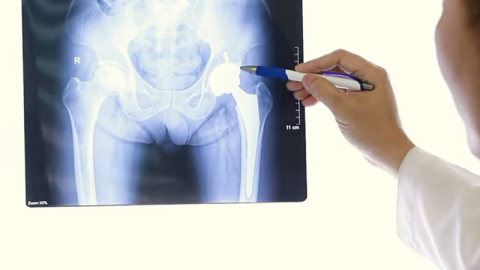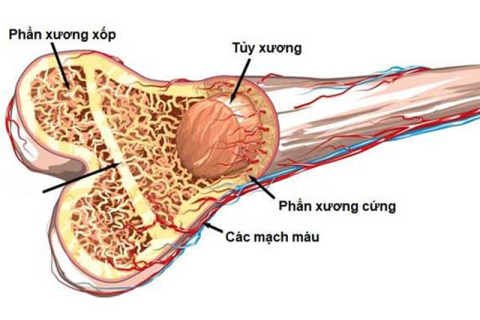Usually, mercury poisoning builds up over time. However, an acute condition can still occur if you are exposed to large amounts of this mercury. Knowing the signs of mercury poisoning is one of the knowledge you need to equip to take measures to prevent mercury poisoning for yourself and your family.
Mercury is a liquid metal that is persistent in the environment and bioaccumulates in the food chain. Mercury is less toxic, but its vapors, compounds, and salts are very toxic, and can cause damage to the nervous, digestive, respiratory, immune systems, and kidneys. Although less toxic than its compounds, mercury still creates significant pollution to the environment because it creates organic compounds in the organism. Mercury released from mercury-containing waste exists in the environment (soil, water, air, sediments, plants...) or accumulates in the food chain and into the human body through consumption fish and seafood, or mercury vapor directly or absorbed in human hair.
Early warning signs and symptoms of mercury poisoning
Mercury can affect the nervous system, leading to neurological symptoms such as: nervousness or anxiety, depression; irritability or mood swings; numbness; memory problems; trembling limbs and body.
As the level of mercury in the body increases, many signs of mercury poisoning will appear, depending on the age and level of exposure of each person. Adults with mercury poisoning may experience symptoms such as: muscle weakness; a metallic taste in the mouth; nausea and vomiting; lack of motor skills or coordination, difficulty walking or standing upright; absence of sensation in the hands, face or other areas, changes in vision, hearing or speech; shortness of breath.
The first signs of mercury poisoning are numbness and tingling in the lips, fingers and toes, tremors in the limbs, loss of coordination, personality changes, memory loss, and insomnia. , fatigue, headache, weight loss, psychological stress and gingivitis…
People with mild symptoms of mercury poisoning have the first symptoms of fever, chills, and difficulty breathing. Other symptoms include: stomatitis, lethargy, convulsions, vomiting, and enteritis. These symptoms usually subside within a week. However, in some cases, the progression is more severe than acute pulmonary edema, respiratory failure and death.
Mercury can affect early development in children. Children with mercury poisoning are prone to the following symptoms: impaired motor skills; problems with thinking, speaking or perceiving; difficulty with hand-eye coordination
 Signs of mercury poisoning are fever, vomiting
Signs of mercury poisoning are fever, vomiting
Long-term complications of mercury poisoning
Exposure to high levels of mercury can put people at increased risk of long-term complications including:
Nerve damage: High levels of mercury in the blood can cause long-term nerve damage. These effects are more pronounced in developing children. Mercury poisoning can disrupt intelligence, slow reflexes, paralyze motor skills, and have problems with memory and concentration.
Fertility disorders: Mercury poisoning can decrease sperm count or reduce fertility. It also causes problems for the fetus such as malformations, increased risk of miscarriage, reduced size of the baby at birth.
Cardiovascular damage: Mercury promotes the accumulation of free radicals in the body, leading to cell damage. This increases the risk of cardiovascular problems such as heart attack and coronary heart disease.
People who eat foods containing organic mercury such as marine fish that cause poisoning, develop symptoms of mercury poisoning after days to weeks, are prone to nervous breakdowns, hearing loss, muscle tremors, and movement disorders. motion and possibly death.
Usually, mercury poisoning builds up over time. However, the sudden appearance of any of these symptoms can be a sign of acute poisoning. If you suspect you or a loved one has mercury poisoning, call your doctor right away. When people have symptoms of cough, shortness of breath, chest pain, unusual fever, they must go to the hospital to be examined for timely handling measures.
 Inhaling mercury vapor is harmful to the heart, nerves and reproductive function
Inhaling mercury vapor is harmful to the heart, nerves and reproductive function
How is mercury poisoning treated?
Initial treatment of mercury poisoning is similar to other poisonings, with rapid assessment of respiratory and circulatory status.
With mercury exposure through the skin, it is necessary to remove toxins from the skin by removing contaminated clothing, washing skin and eyes if contaminated. Poisoning by swallowing, neither vomiting nor gastric lavage, due to the risk of gastric perforation and esophageal perforation. Do not use activated carbon because it does not have the effect of metal adsorption. In case of inorganic mercury poisoning, it is necessary to receive fluids to prevent cardiovascular collapse. If damage to the oropharyngeal mucosa causes significant edema, endotracheal intubation is recommended to prevent respiratory obstruction. When systemic symptoms are indicative of the conversion of organic mercury to inorganic mercury in the body, specific antidotes must be administered immediately.
Because of the dangerous health effects of mercury exposure, the Ministry of Health recommends that parents be careful in the use of mercury-containing items such as thermometers, batteries, marine fish, etc.
 Care should be taken when using marine fish to avoid mercury poisoning
Care should be taken when using marine fish to avoid mercury poisoning
Mercury poisoning can lead to long-term complications, so if you feel you have signs of mercury poisoning after being exposed to mercury or breathing in mercury vapor during a mercury fire, don't worry. It is important that you discuss your condition with your doctor to make sure your blood mercury levels return to a safe range.


 Signs of mercury poisoning are fever, vomiting
Signs of mercury poisoning are fever, vomiting Inhaling mercury vapor is harmful to the heart, nerves and reproductive function
Inhaling mercury vapor is harmful to the heart, nerves and reproductive function Care should be taken when using marine fish to avoid mercury poisoning
Care should be taken when using marine fish to avoid mercury poisoning






